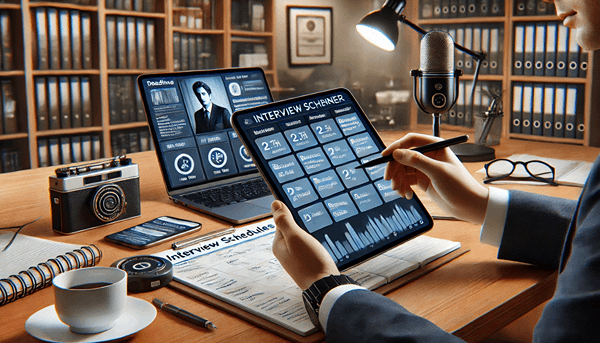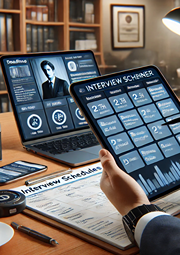Journalists: Manage Deadlines and Interviews with a Digital Planner
Journalism is fast-paced, and staying on top of deadlines, interviews, and research can be overwhelming. For journalists, a digital planner offers an efficient way to manage tight deadlines, schedule interviews, and keep track of sources and research notes.
Here’s how a digital planner can streamline your workflow and keep you organized in the fast-moving world of journalism.
Journalism is fast-paced, and staying on top of deadlines, interviews, and research can be overwhelming. For journalists, a digital planner offers an efficient way to manage tight deadlines, schedule interviews, and keep track of sources and research notes. Here’s how a digital planner can streamline your workflow and keep you organized in the fast-moving world of journalism.
Stay on Top of Deadlines
Meeting tight deadlines is crucial in journalism, and missing one can cost you a story. A digital planner helps you organize your articles and track important due dates with ease.
- Schedule deadlines for articles, features, and editorials, ensuring each project gets the attention it needs.
- Set reminders to give yourself enough time to write, edit, and fact-check your stories.
- Color-code tasks based on the urgency of the article, making it easy to prioritize your workload.
Example: You’re working on two stories: a breaking news piece due by the end of the day and an in-depth feature due next week. Your digital planner color-codes these deadlines, sending you notifications to focus on the breaking news first, without losing sight of the upcoming feature.
Manage Interview Schedules
Interviews are a key part of gathering information for stories, but managing them alongside writing deadlines can be tricky. A digital planner allows you to organize interviews efficiently and stay prepared for each one.
- Block out time slots for interviews and include details like the interviewee’s name, topic, and contact information.
- Attach interview questions and research notes to each appointment for easy reference during the interview.
- Set reminders to follow up with sources or send thank-you notes after interviews.
Example: You have an interview scheduled with a government official. Your planner sends you a reminder an hour before, and you’ve attached your prepared questions, so everything is ready when the call begins.
Track Research and Sources

A good journalist needs to keep track of research and sources, often juggling multiple stories at once. A digital planner can help you organize notes, track sources, and ensure all your information is easily accessible.
- Log sources and add notes about their expertise, quotes, or background information.
- Attach research documents to specific articles or projects, ensuring all your materials are in one place.
- Set reminders for follow-ups with sources, whether it’s to ask additional questions or verify facts.
Example: You’re writing a feature on climate change and have several expert sources. Your digital planner tracks each source and their quotes, allowing you to quickly reference their input during the writing process.
Organize Editorial and Pitch Meetings
Journalists often need to pitch ideas to editors or attend editorial meetings. A digital planner helps journalists organize pitches and prepare for editorial reviews.
- Schedule meetings with editors, including pitch details or story ideas.
- Track pitches sent to different publications and follow up on approvals or rejections.
- Set deadlines for preparing pitch presentations or sending follow-up emails.
Example: You’re pitching a series of investigative stories to a magazine. Your digital planner tracks the pitch meeting, attaches your pitch deck, and reminds you to follow up with the editor afterward.
Sync Across Devices for Flexibility
Journalists are constantly on the move, whether they’re at a press conference, meeting a source, or working from home. A digital planner syncs across your phone, tablet, and computer, allowing you to manage your schedule from anywhere.
- Update interviews and deadlines from your phone while in the field.
- Access research notes from any device, ensuring you’re always prepared, even on short notice.
- Make real-time adjustments if a story breaks or an interview is rescheduled.
Example: You’re at a press event and need to adjust your schedule for a breaking news assignment. With your planner synced to your phone, you can quickly update your deadlines and reschedule less urgent tasks.
Conclusion
For journalists, staying organized is critical for managing interviews, research, and article deadlines. A digital planner simplifies these tasks, helping you track deadlines, schedule interviews, and manage sources all in one place.
Ready to streamline your journalism workflow? Discover how a digital planner can help you manage deadlines and interviews effortlessly.




